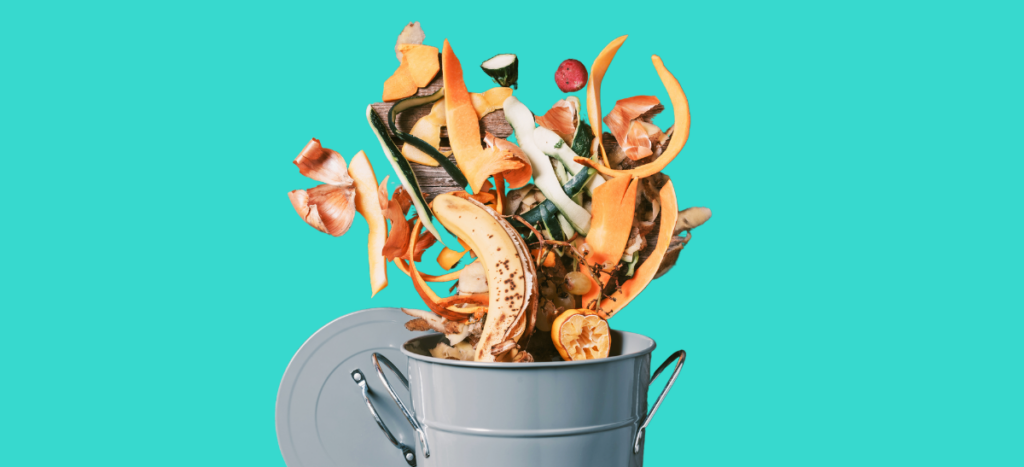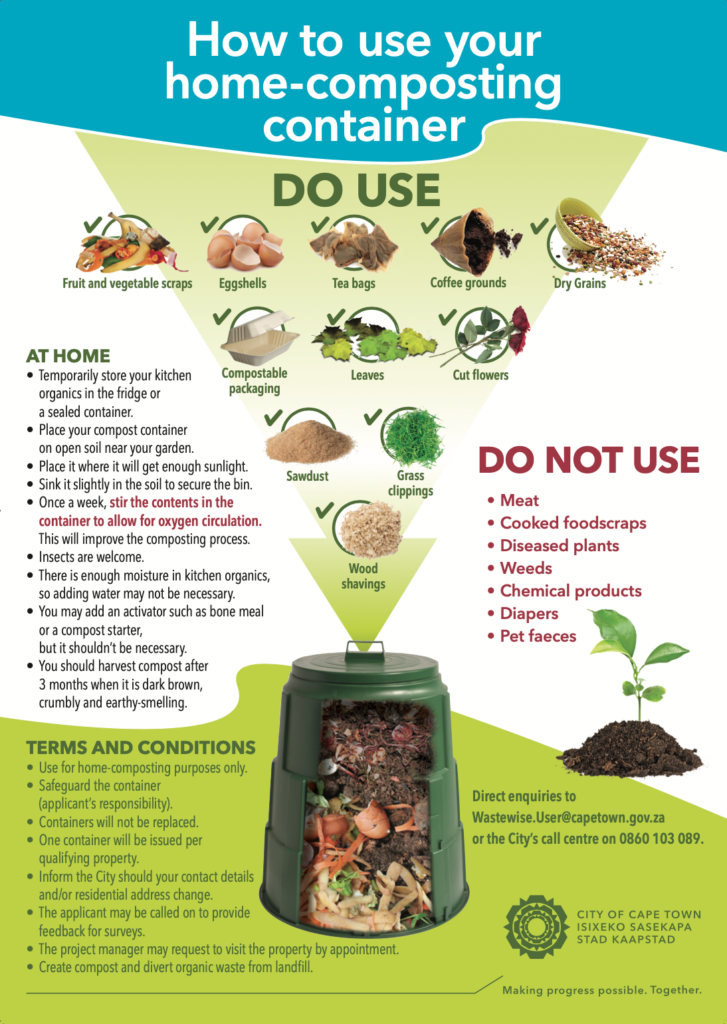Your city needs you to compost. (Now, more than ever!)
When we wheel out our bins on rubbish day, its contents are quickly out of sight and out of mind.
Our trash will get collected, and taken away. Problem solved.
Except, of course, the problem has only been relocated. (Most likely to a landfill). Our rubbish is now a city management problem. And the planet’s problem, too.
Not ideal. Especially since, like many other countries, South Africa has a looming landfill crisis and is running out of landfill airspace fast!
So, how can we reduce this ever-expanding waste legacy?
Step one is to take a good look inside that bin that we put out each week.
Is there any food waste in there? Fruit and veg scraps? That slice of toast that landed butter side down in the dog basket? Takeaway scraps in compostable packaging? Egg shells? Toe nail clippings? Hair pulled from a hairbrush?

Some of these things might be a bit gross, but they are all biodegradable! Humble, yes. But also magical. They are part of the enormous waste-free cycles of growth and decay that have looped on our planet for millions (billions?) of years.
These items do not need to languish in landfill. They are destined for greater things. They can be composted and returned to the Earth. They are part of the great cycle of life!
Which begs the question: are you helping to keep the great waste-free loop in motion?
Diverting organic waste from landfill is one of the best ways to reduce our waste footprint. And it comes with loads of environmental benefits. (It improves soil fertility, lowers carbon emissions, and protects against droughts and floods, just for starters…)
Your city will thank you.
City managers are keenly aware of the urgent need to reduce the waste we send to landfill. To this end, the City of Cape Town has been running its Home Composting Program for years. They encourage people to compost at home, and even give away composting containers regularly (you can check this page to see when, and where, the program is running.)
Home composting bins can also be bought from many outlets. And, of course, with a bit of space you can compost without a bin too.
The below poster from CoCT provides info on their compost program and useful composting guidelines.

This is great advice, especially for those just starting out. However, once you get going, you may choose to compost any cooked food scraps you have too.
Cooked food is perfectly compostable. Many advise against composting cooked food, meat and dairy because it can attract scavengers. It can also produce more gnarly smells and bacteria as it breaks down. That said, if the overall health of your compost pile is good, burying a few cooked food, meat and / or dairy scraps inside the pile will not cause problems. You can assess which items are appropriate to include with your specific setup.
Of course, you also want to separate your (clean and dry) recyclable materials (like paper and tins) and either drop them at a recycler, have them collected by a recycling service, or give them to one of the many informal waste pickers active in SA.
And then, when rubbish day rolls round, you can be satisfied that you’re working to minimise what you leave out on the curb.

Some of those no-nos like like cooked food and meat scraps can be well transformed by worms (eisenia fetida) that do an excellent and relatively quick job on problematic organics.
Happy to help supply/chat to people. Been a successful worm farmer since 1997.